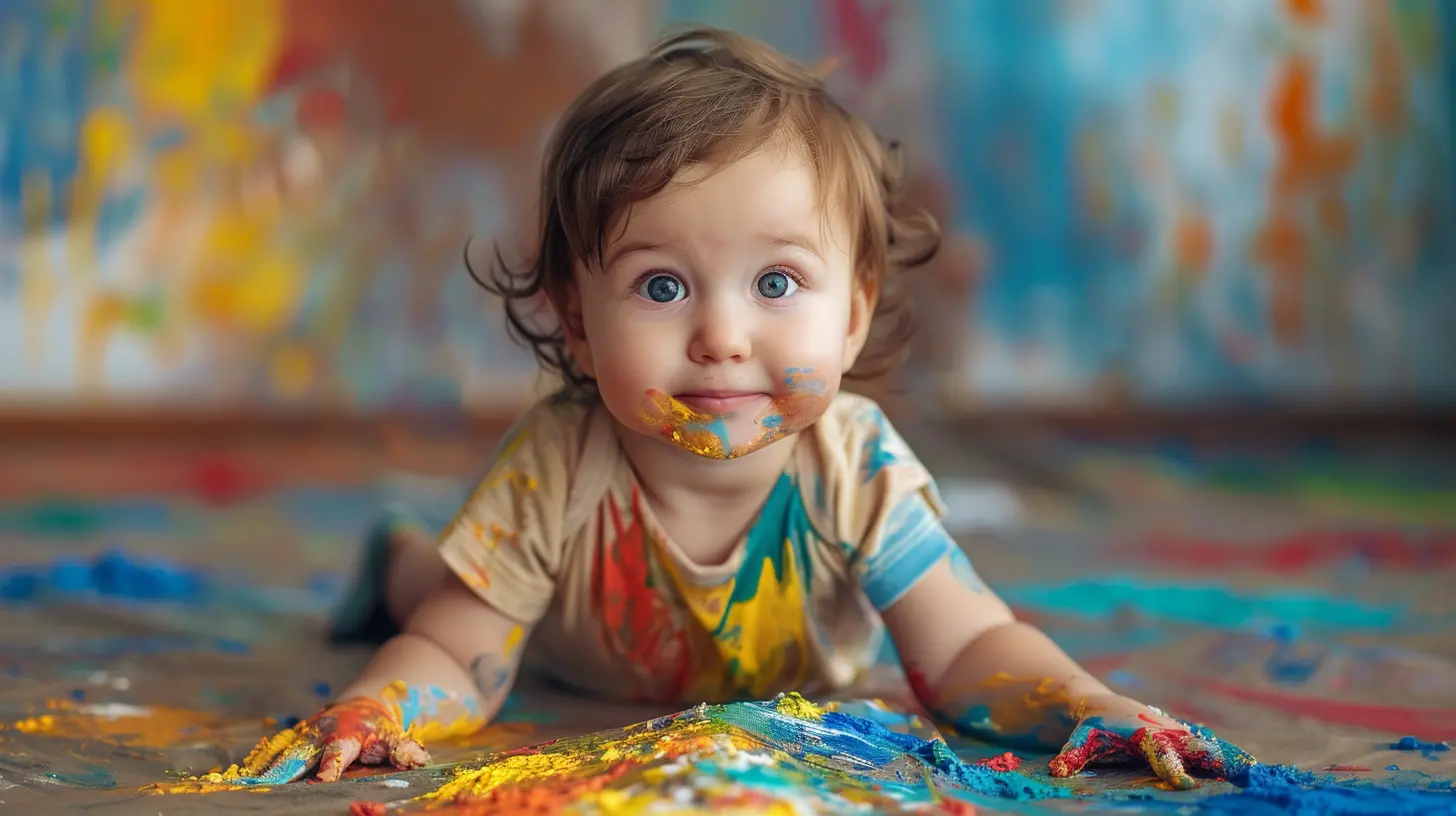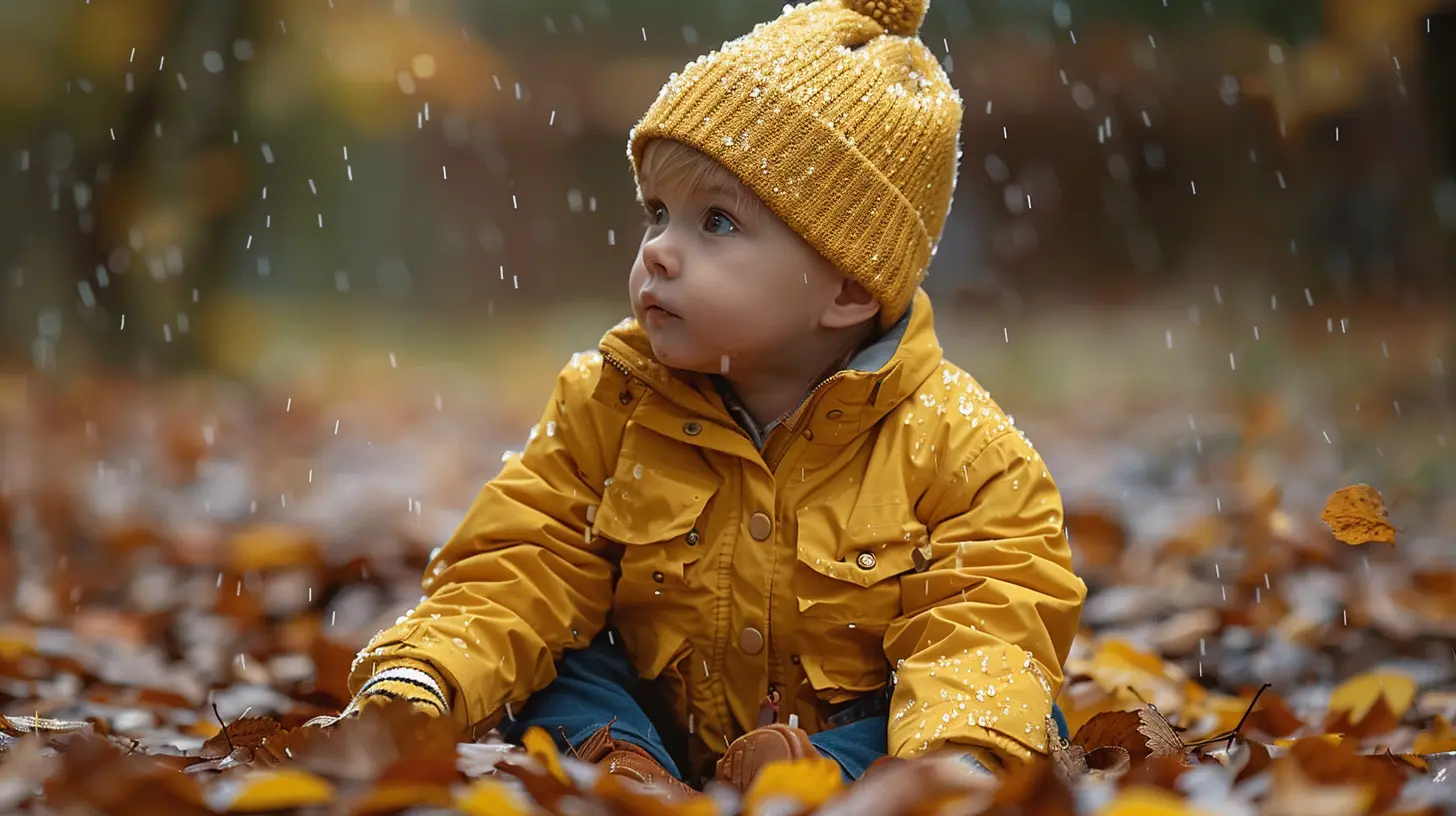Preparing for Preschool: Skills to Encourage During Toddlerhood
22 August 2025
Watching your little one grow from a baby into a curious, adventurous toddler is an exciting journey. But as they inch closer to preschool age, you might start wondering, Are they ready?
Preschool is a big step, not just for your child but for you too. While academics are important, preschool is more about social, emotional, and basic life skills. So, what should you focus on during toddlerhood to set them up for success? Let’s dive into the key skills that will make your toddler’s transition to preschool smoother! 
1. Independence: Helping Them Do Things on Their Own
One of the most important skills for preschoolers is independence. Once they start preschool, they’ll need to do things like put on their shoes, wash their hands, and manage basic tasks without constant help.Encouraging Independence
- Self-care routines: Teach them how to put on their shoes, zip up a jacket, or use a spoon properly.- Clean-up habits: Encourage them to put away toys and throw trash in the bin.
- Decision-making: Let them pick between two outfits or choose their bedtime story.
The more confident they feel about doing things independently, the easier their preschool transition will be! 
2. Social Skills: Learning to Play Well with Others
Preschoolers spend a lot of time interacting with other kids. If your little one is used to only playing solo, sharing and turn-taking might come as a shock!How to Encourage Social Skills
- Arrange playdates: Give them opportunities to interact with children their age.- Practice sharing: Teach them to take turns with toys and snacks.
- Model good manners: Saying "please" and "thank you" goes a long way in making friends!
Social skills take time to develop, so lots of practice in different settings helps toddlers become more comfortable around others. 
3. Communication: Expressing Needs and Emotions
Your child doesn’t need to be a chatterbox, but being able to express their needs, feelings, and basic thoughts is important for school readiness.Boosting Communication Skills
- Encourage storytelling: Ask them to describe their day or tell a story using picture books.- Teach simple phrases: Phrases like “Help me, please” or “I need to go potty” are great for preschool survival.
- Name emotions: Instead of just saying they’re upset, help them identify emotions like happy, sad, or frustrated.
The better they communicate, the easier it will be for teachers and classmates to understand them. 
4. Fine Motor Skills: Getting Those Little Hands Ready
Preschool involves a lot of hands-on activities like coloring, cutting with safety scissors, and playing with small objects. Strengthening fine motor skills during toddlerhood makes these tasks easier.Fun Ways to Develop Fine Motor Skills
- Play with Play-Doh: Squishing, rolling, and shaping clay strengthens hand muscles.- Use chunky crayons: Coloring within the lines isn’t important yet—just let them scribble!
- Practice with tongs or tweezers: Picking up small objects builds hand coordination.
- String large beads: This helps with dexterity and hand-eye coordination.
The stronger their hand muscles, the more confident they’ll be in classroom activities.
5. Gross Motor Skills: Building Strength and Coordination
From running to jumping to climbing, toddlers need plenty of movement to keep their bodies strong and active. Preschool days are full of active play, so getting your child comfortable with physical movement now is key.Encouraging Gross Motor Development
- Outdoor play: Let them run, jump, climb, and explore.- Dancing and music: Turn on their favorite song and have a dance party!
- Obstacle courses: Set up pillows to jump over and tunnels to crawl through at home.
- Ball games: Throwing, catching, and kicking develop coordination.
The more active they are, the easier it will be to keep up with energetic preschool friends.
6. Following Directions: Listening and Responding to Instructions
Teachers give lots of instructions, and kids who are used to following simple directions will have an easier time adjusting.How to Help Your Toddler Follow Directions
- Give simple tasks: Ask them to put their cup on the table or bring their shoes to you.- Use fun games: “Simon Says” or “Follow the Leader” make practicing directions fun.
- Break it down: Instead of saying, “Clean your room,” try, “Pick up your blocks first.”
Preschool teachers love kids who can follow directions—trust me on this one!
7. Potty Training: Mastering the Basics
Most preschools expect children to be potty trained, though occasional accidents are normal. If your toddler is still working on this, now’s a great time to reinforce good bathroom habits.Potty Training Tips
- Set a routine: Encourage bathroom breaks at regular intervals.- Use positive reinforcement: Stickers or verbal praise make a big difference!
- Teach proper hygiene: Show them how to wipe, flush, and wash hands.
Every child learns at their own pace, but feeling comfortable using the potty will make preschool a breeze.
8. Basic Academic Readiness: Laying the Foundation
While preschool isn’t about advanced academics, basic skills like recognizing shapes, colors, and letters make learning more enjoyable.Simple Ways to Build Academic Readiness
- Read together daily: Books introduce vocabulary and storytelling.- Sing the ABCs: Make letter recognition fun with songs.
- Play counting games: Count snacks, toys, or steps to make numbers part of daily life.
- Introduce puzzles: Simple jigsaw puzzles improve problem-solving skills.
Learning should be playful at this stage—no pressure, just fun!
9. Emotional Readiness: Handling Separation and New Environments
One of the toughest parts of preschool (for both parent and child!) is separation. If your toddler has never spent time away from you, the first few days might be tricky.How to Make Separation Easier
- Practice short separations: Leave them with a trusted family member for short periods.- Talk about preschool positively: Get them excited about making new friends and fun activities.
- Create a goodbye routine: A special hug or handshake can ease anxiety.
- Be confident: Kids pick up on your emotions, so if you seem calm, they will too!
Preschool is an adventure, and preparing emotionally makes the transition much smoother.
Final Thoughts
Preparing for preschool isn’t about drilling flashcards or expecting perfection. It’s about encouraging independence, social confidence, and basic life skills that help your little one navigate their new world.Every child develops at their own pace, so don’t stress too much—just enjoy this stage! With love, encouragement, and plenty of fun practice, your toddler will be more than ready to take on preschool.
all images in this post were generated using AI tools
Category:
Toddler MilestonesAuthor:

Max Shaffer
Discussion
rate this article
1 comments
Arlo McQuillan
What a fantastic article! Preparing our little ones for preschool can be a joyful journey. Fostering skills like sharing, independence, and communication during toddlerhood is so important. It’s wonderful to see parents being proactive in their child’s development. Keep up the great work, everyone! Your efforts truly make a difference!
September 10, 2025 at 3:06 AM

Max Shaffer
Thank you so much for your kind words! I'm glad you found the article helpful in supporting our little ones' growth. Together, we can make a positive impact!


